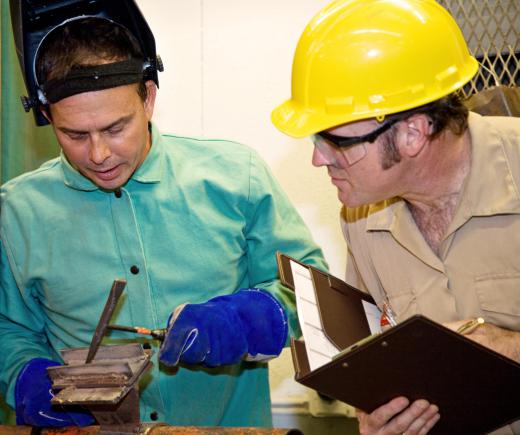Quality assurance (QA) is a process-centered approach to ensuring that a company or organization is providing the best possible products or services. It is related to quality control, which focuses on the end result, such as testing a sample of items from a batch after production. Although these terms are sometimes used interchangeably, quality assurance focuses on enhancing and improving the process that is used to create the end result, rather than focusing on the result itself. Among the parts of the process that are considered in QA are planning, design, development, production and service.
The Shewhart Cycle

There are many QA tools that organizations can use and that will help guide them through the steps that are needed to ensure that their processes are as efficient and productive as possible. One of the most popular tools is called the Shewhart cycle, which was developed by Dr. W. Edwards Deming, a 20th-century American management consultant who named the tool after his associate, Walter A. Shewhart. This cycle for quality assurance consists of four steps: Plan, Do, Check and Act (PDCA). At the end of Shewhart cycle, which also is called the Deming cycle or PDCA cycle, the steps are repeated to ensure that the process is being evaluated and improved on a constant basis.
Four Steps

During the first step of the PDCA cycle, Plan, the organization should establish its objectives and determine the processes or changes in the processes that are required to deliver the desired results. The second step, Do, is when the processes or changes are developed and tested. In the third step, Check, the processes or changes are monitored and evaluated to determine whether the results are meeting the predetermined objectives. The final step, Act, is when actions that are necessary to achieve the desired improvements are fully implemented into the process. The cycle can then be repeated, beginning with new objectives being planned.
Excellence in Every Component

The Shewhart cycle can be an effective method for achieving quality assurance because it analyzes the existing conditions and methods that are used to provide the product or service to customers. The goal is to ensure that excellence is inherent in every component of the process. Quality assurance also helps determine whether the steps that are used to provide the product or service are appropriate for the time and conditions. In addition, if the cycle is repeated throughout the lifetime of the product or service, it helps improve the company's efficiency by ensuring that the process is always being refined and improved.
Attention to Detail

Quality assurance demands a degree of detail in order to be fully implemented at every step. Planning, for example, could include determining specific levels of quality or measurable results that the organization wants to achieve. Checking could involve testing and other objective measurements to determine whether the goals were met, rather than mere subjective evaluation of quality. Acting could mean a total revision in the manufacturing process to correct a technical or cosmetic flaw or very small changes to improve efficiency or accuracy.

Competition to provide specialized products and services often results in breakthroughs as well as long-term growth and change. Quality assurance verifies that any customer offering, regardless whether it is new or evolved, is produced and offered with the best possible materials, in the most comprehensive way and with the highest standards. The goal to exceed customer expectations in a measurable and accountable process is provided by quality assurance.
